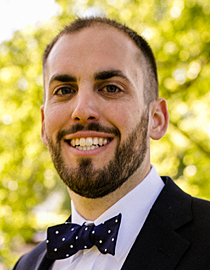
Culture

Lester
Now on display in the lobby of the Pastoral Center in Braintree, Massachusetts, are photographs depicting Holy Name Society events from the early- to mid-20th Century.
The Confraternity of the Most Holy Names of God and Jesus, more commonly known as the Holy Name Society, can trace its roots to the Council of Lyons in the year 1274. Pope Gregory X called this special council of Catholic bishops as a reaction to a perceived threat to the Catholic Church, largely in the form of the Albigenses.
Albigensianism was a dualistic belief system in which the devil was the creator of all matter, and God the creator of the spirit, or soul. They believed that the devil trapped one's soul in human form, matter, and salvation lay in breaking free of this container so the soul could return to heaven. Perhaps the most contentious part of Albigensianism was the belief that Christ was not God, but a spirit in human form, and because of this they did not believe he was raised from the dead. In fact, they did not believe humans were raised after death in any bodily form, and that suicide was a permissible way to release the soul.
At the Council of Lyons, it was decided that the most effective way to counteract the heresies that were becoming more prevalent in Europe was to encourage a special devotion to the Holy Names of God and Jesus. To accomplish this, Pope Gregory X called upon Blessed John of Vercelli, Master General of the Order of Preachers, also known as the Dominican Order. He was tasked with sending members of the order to spread the Word of God and increase the devotion to both Jesus and God among the lay people of Europe.
The Holy Name Society actually came about from a merger of two separate groups which developed from this initiative. In the 16th century, the Franciscan Friars established a confraternity of lay people to promote devotion to the Holy Name of Jesus. The Dominican Order helped establish confraternities to promote devotion to the Holy Names of God, over which Pope St. Pius V, himself a Dominican, gave them sole jurisdiction in 1571. On May 26, 1727, Pope Benedict XIII, also a Dominican, essentially merged the two confraternities together by granting them the same rights and privileges, giving jurisdiction over the two to the Dominican Order.
The society defines its mission as promoting reverence for the Sacred Names of God and Jesus Christ, obedience and loyalty to the Magisterium of the Catholic Church, and the personal sanctification and holiness of its members. Members are expected to be practicing Catholics and participate in evangelization activities to help spread the Word of God. There is also a focus on performing the corporal and spiritual works of mercy.
In Boston during the 20th Century, Cardinal William Henry O'Connell urged each parish to form a local branch of the organization, and that all men at each parish become members. They were a presence at public events in the region, most notably during the Centennial Celebration of the Archdiocese of Boston in 1908, which saw 40,000 members parade through the city.
Perhaps because of his successful promotion and growth of the Holy Name Society in Boston, Cardinal O'Connell was appointed Papal Legate to the first National Convention of the Holy Name Society on Aug. 30, 1924, by Pope Pius XI. The convention was called to celebrate the 650th anniversary of the Society's founding, and Cardinal O'Connell's appointment was significant as it marked the first time the Holy See sent a Legate to a laymen's convention in the United States.
Historically, the Holy Name Society was a Catholic lay men's organization, but in modern times any Catholic lay person or clergymen over the age of 18 is eligible to join. Membership continues to be recognized at the parish level, but those interested in learning more about the society, or becoming a member, can do so by visiting the website for the national organization at www.nahns.com.
The Regional Director for New England, Mr. Joseph Lapointe, may be contacted at: 97 Dixon Road, Brockton, MA 02302-2236, by calling 508-584-2019 or emailing jwl3148@aol.com.
- Thomas Lester is the archivist of the Archdiocese of Boston.
Recent articles in the Culture & Events section
-
Scripture Reflection for Nov. 10, 2024, Thirty-Second Sunday in Ordinary TimeDeacon Greg Kandra
-
Men behaving beastlyGreg Erlandson
-
The installations of Boston's diocesan bishops and archbishopsMatthew Radulski
-
The communion of saintsEileen McLaughlin
-
Newman on the process of conversionRussell Shaw


















